National Arts Festival here comes the Northern Cape!
Story by Waaqiah Jaffer
Ninety-two artists consisting of cast members, theatre practitioners and crew left Kimberley on 21 June for Makhanda to participate in the Annual National Arts Festival, taking along six stage productions from the province. The festival will run from 22 June to 3 July 2023.
All participants are from Francis Baard and Namaqua Districts. The stage productions representing the province are The Orange Dress, Modimo Ngaka, Legendary Queer Sisters, Swart Water, Womandla and Emsini. These productions address issues, including Gender Based Violence (GBV), land, homophobia, education and spirituality.
To nurture and complement each other and develop talent, participants include experienced and inexperienced artists. In preparation for the festival, the rehearsal period for artists they were varied from one week, while others have been perfecting their craft for six weeks. The duration of each performance is one hour.
Legendary actor, Monwabisi Bangiwe indicated that the team’s youngest member is 17 years old and the oldest is 34 years old. ”Some of the participants have up to 14 years experience in the industry”, he said.
He added that “these actors take pride in being from the Northern Cape and display the diversity of our province. I believe that our unique traits entail being multicultural and multilingual.”
“Even though Emsini has previously won, they have decided to enter again since you are allowed to bring the same show for the arena”, explained Bangiwe.
According to Bangiwe, the total cost for the festival is R1 300 000 for transport, accommodation, food and S&T for the crew and other resources.
The Department of Sports, Arts and Culture contributed to the festival, although the funds were not enough. The artist’s plea to the Government is to show more interest in local artists by providing the necessary support and funding. “Like many professionals, this is a career for many people”, said Bangiwe.
Participants also expressed gratitude to the Northern Cape Government and promised not to return empty-handed.
Legendary queer sisters
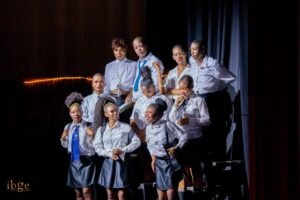
Legendary queer sisters take us through the journey of ruffled feathers and Bandile’s reconciliation as legendaries. It is a theatre performance piece that celebrates both the genial and scars of the lgbtqi+ community through song, dance, and narrative. The piece shows our society’s psychological impact on the upbringing of those who coexist within it. In the piece parenting styles are questioned, as are incidents of murder and rape.
The orange dress
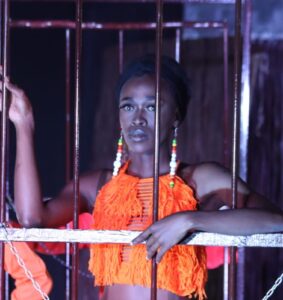
Set in a cold and lonely room, a troubled woman reads through the diaries of six trapped beings, a traditional healer, a model, a mother and members of the lgbtqi+ community. Dressed in orange overalls, we follow their stories as they share how they ended up behind bars. Their unique narratives are connected by the single thread of gender based violence. The stories of the diaries of the 053 prison are told through live vibrant music, energetic dance and smooth vocals.
Modimo ngaka
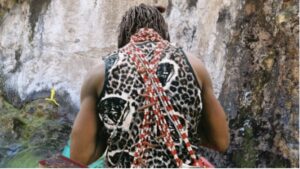 This is a story about a sangoma who heals souls through the power of storytelling. He arrives with no idea of what story he is about to tell — instead, the audience will determine what story they want to hear the story that will idove, teach, empower and heal them. Unlike the normal sangoma he doesn’t carry bones ditaola he carries books ditaba.
This is a story about a sangoma who heals souls through the power of storytelling. He arrives with no idea of what story he is about to tell — instead, the audience will determine what story they want to hear the story that will idove, teach, empower and heal them. Unlike the normal sangoma he doesn’t carry bones ditaola he carries books ditaba.
Swartwater
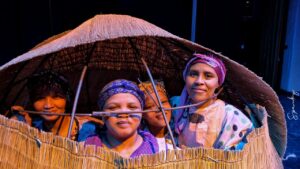 Swart water is a reimagination of the loss that was experienced by the indigenous Nama people through colonisation and the discovery of diamonds. It revolved around a nama family that has to move from Swartwater, which opened new wounds of other losses. The story is told through the eyes of tieles, who is in the process of relocating from Swartwater. In this process of packing, she takes us on the journey of loss that she encountered. She remembers her daughter, Sosanas, that left Swartwater with Jannie for the cape colony.
Swart water is a reimagination of the loss that was experienced by the indigenous Nama people through colonisation and the discovery of diamonds. It revolved around a nama family that has to move from Swartwater, which opened new wounds of other losses. The story is told through the eyes of tieles, who is in the process of relocating from Swartwater. In this process of packing, she takes us on the journey of loss that she encountered. She remembers her daughter, Sosanas, that left Swartwater with Jannie for the cape colony.
Emsini
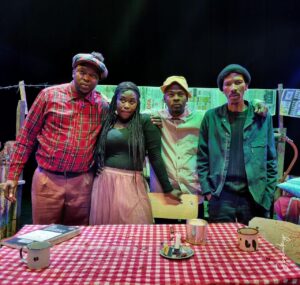
Emsini strikes savagely at a sore point in post—apartheid south african culture. Its commentary focuses on the generational shift in consciousness between the heroes of the mandela era and a particular section of the youth of the next generation: those who grew up amidst the height of the country’s violence but were left disillusioned after the struggle was won and the dreams of a better life remained unfulfilled.
Womandla
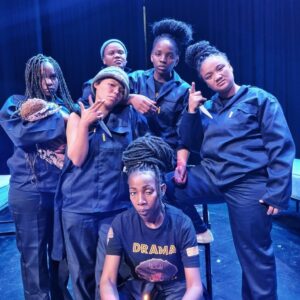 Seven women from different walks of life themselves confined and confronted by the wall of prison. Inspired by true events, they tell their stories, accompanied by acappella songs and sound effects to depict the reality of black women in SA.
Seven women from different walks of life themselves confined and confronted by the wall of prison. Inspired by true events, they tell their stories, accompanied by acappella songs and sound effects to depict the reality of black women in SA.

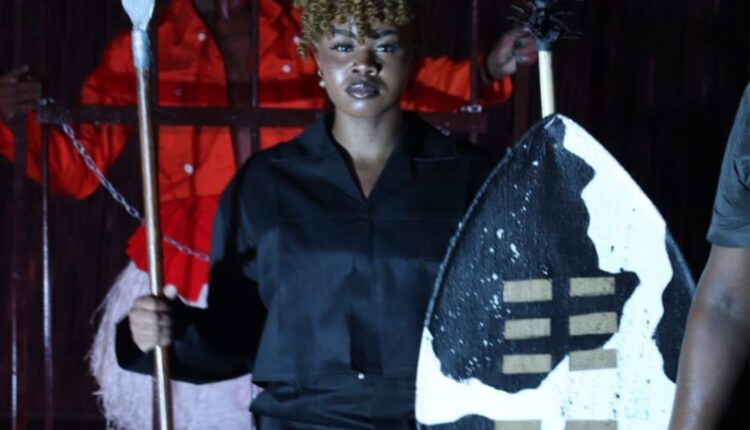
Comments are closed.